Developing analytical thinking Worksheets for 7-Year-Olds
6 filtered results
-
From - To
Enhance your child’s cognitive growth with our tailored "Developing Analytical Thinking Worksheets for 7-Year-Olds." These expertly designed resources from Kids Academy stimulate young minds through engaging puzzles, pattern recognition, and critical thinking challenges. Our worksheets help build essential problem-solving and logical reasoning skills, laying a strong foundation for future academic success. Whether distinguishing between cause and effect or exploring sequences, your child will enjoy honing their analytical abilities in a playful and productive way. Nurture a lifelong love for learning – visit our collection and watch their minds thrive!
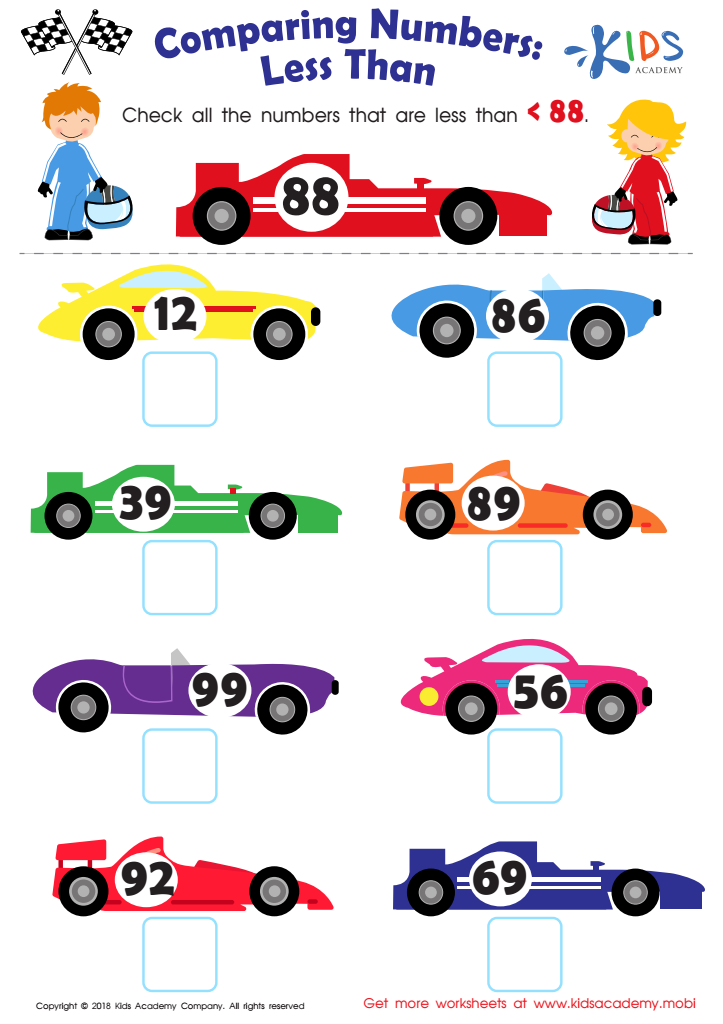

Less Than Worksheet
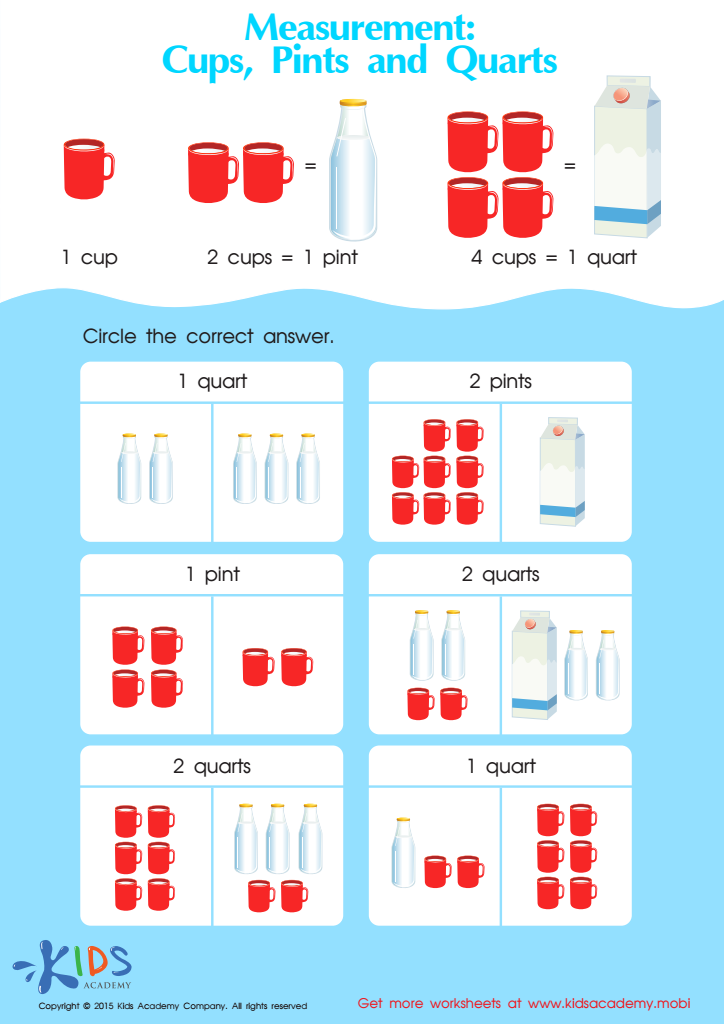

Cups, Pints and Quarts Worksheet
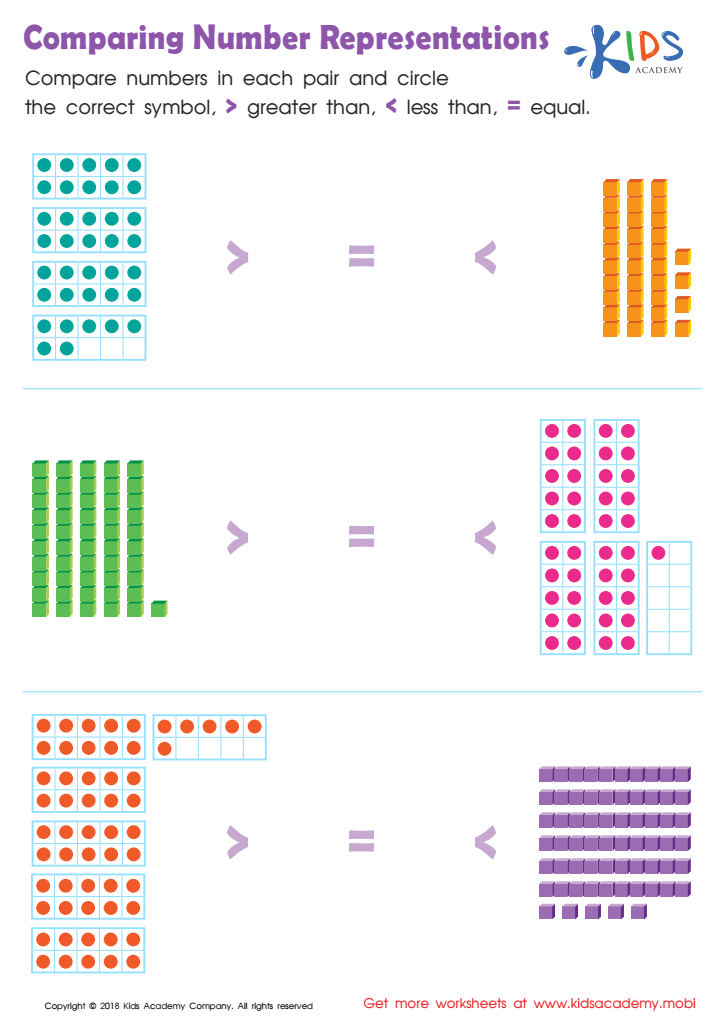

Comparing Number Representations Worksheet
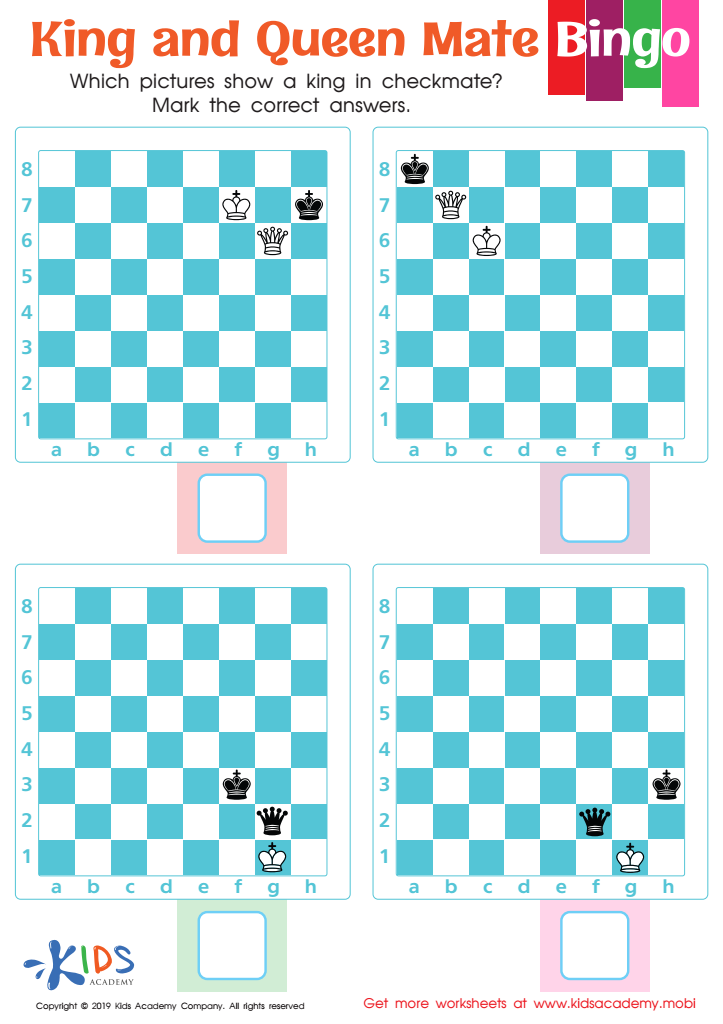

King and Queen Mate: Bingo Worksheet
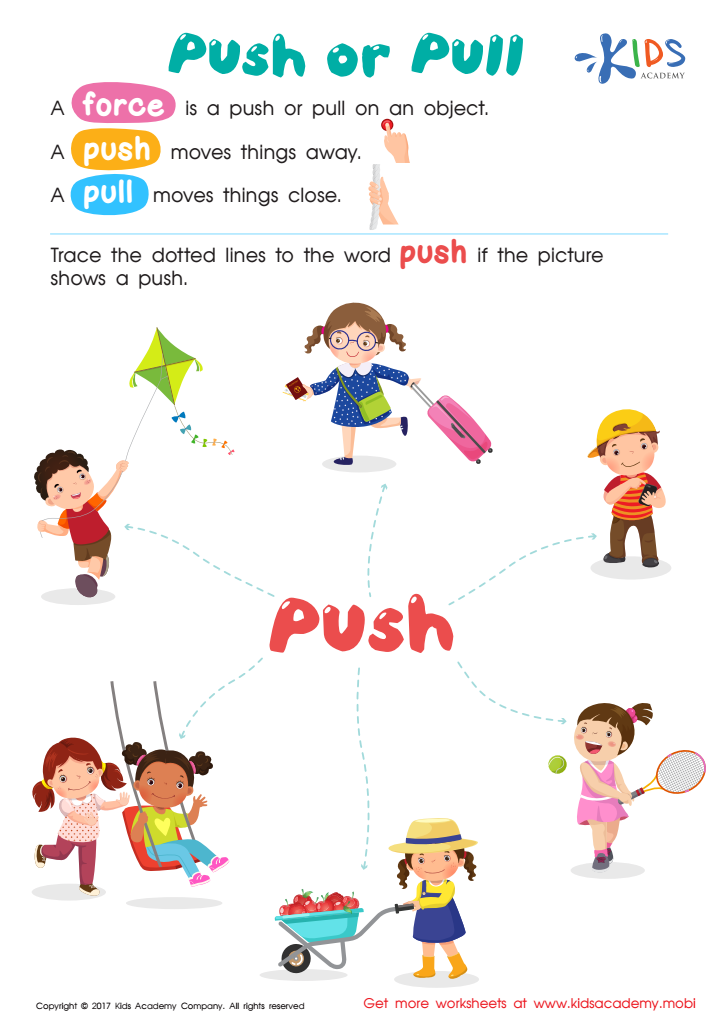

Push or Pull Worksheet
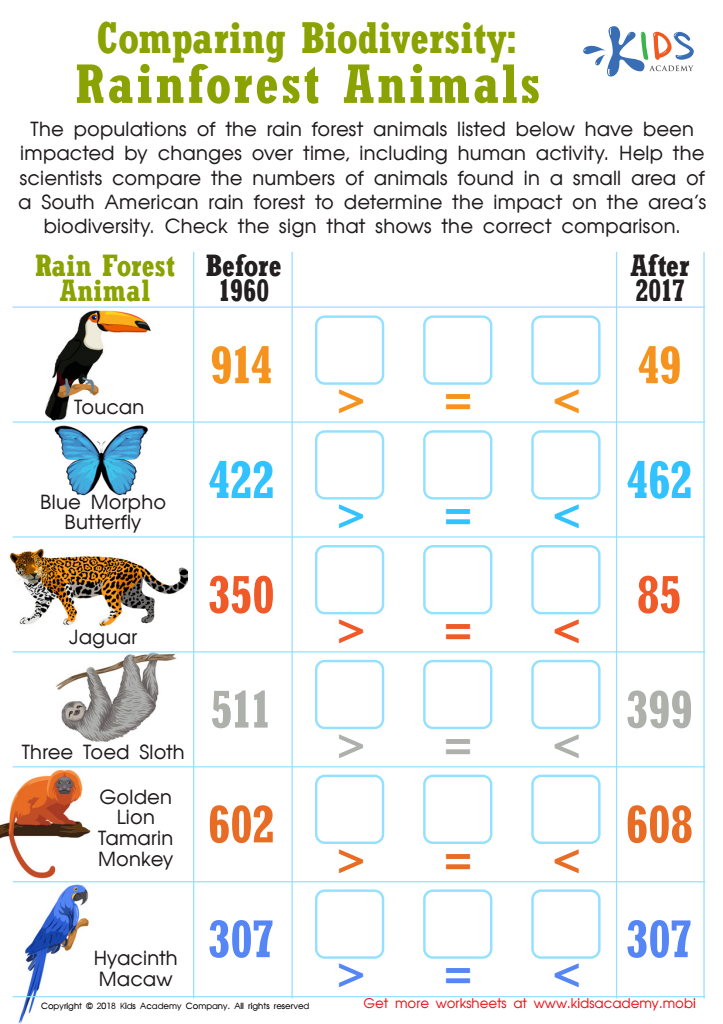

Comparing Biodiversity: Rainforest Animals Worksheet
Developing analytical thinking in 7-year-olds is essential for a myriad of reasons, playing a crucial role in their cognitive and social-emotional development. At this age, children's brains are particularly adaptable, making it an optimal time to instill foundational skills that will benefit them lifelong. By nurturing analytical thinking, we equip young minds with the ability to evaluate situations critically, solve problems efficiently, and make informed decisions—all crucial life skills.
Analytical thinking helps children understand cause and effect, identify patterns, and make connections between different pieces of information. Such skills are invaluable for academic success, enhancing their abilities in subjects like math, science, and reading comprehension. More importantly, it fosters independent thinking and initiative, encouraging children to question and explore the world around them.
From a social perspective, analytical skills improve interpersonal interactions. Children who can consider different viewpoints and foresee the consequences of their actions are more likely to engage in empathetic and cooperative behaviors. This leads to healthier relationships among peers and adults.
Parents and teachers are vital in this developmental process. Through encouraging curiosity, providing multi-step activities, and posing thought-provoking questions, they create an enriching environment that promotes analytical thinking. Investing in these abilities early supports a child’s holistic growth, laying a solid foundation for future academic and personal success.

 Assign to My Students
Assign to My Students















